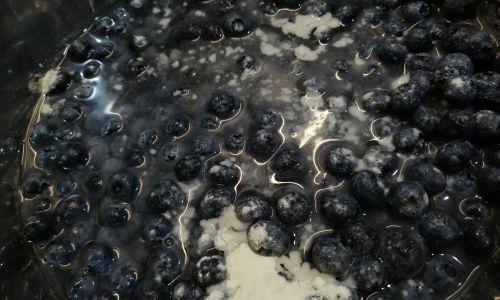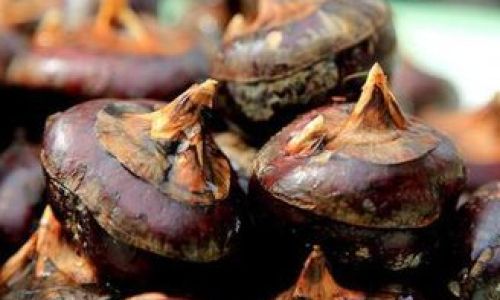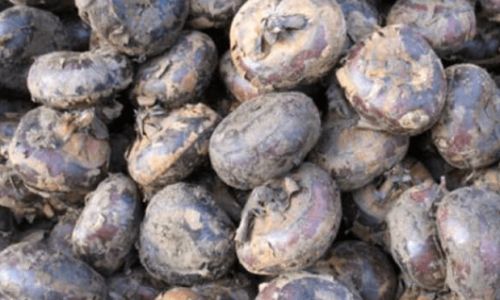Blueberries, known for their vibrant color, sweet-tart flavor, and numerous health benefits, are a popular fruit enjoyed by many. Whether you’re incorporating them into smoothies, baking with them, or simply eating them as a snack, blueberries add a delightful burst of flavor and nutrition to your diet. However, like all fresh produce, blueberries have a shelf life, and it’s important to know how to determine if they’ve gone bad before consuming them. In this comprehensive guide, we’ll explore the various signs and methods to identify spoiled blueberries, the reasons behind their spoilage, and tips for storing them properly to extend their freshness.
Understanding Blueberry Spoilage
Before diving into the specifics of how to spot spoiled blueberries, it’s crucial to understand the process of spoilage. Blueberries, being perishable, undergo a series of changes as they age. These changes can be attributed to both internal biochemical reactions and external environmental factors such as temperature, humidity, and exposure to oxygen.

Biochemical Reactions:
As blueberries ripen and age, they undergo biochemical changes that lead to the breakdown of cellular structures. Enzymes present in the fruit catalyze reactions that cause softening, discoloration, and the loss of firmness. Additionally, the natural sugars in blueberries can undergo fermentation, leading to the production of alcohol and other compounds that alter their taste and aroma.
Environmental Factors:
External factors play a significant role in accelerating or delaying the spoilage process. High temperatures, for instance, can speed up the biochemical reactions within blueberries, causing them to spoil faster. Conversely, low temperatures slow down these reactions, prolonging the fruit’s freshness. Humidity and exposure to oxygen also impact spoilage, as too much moisture can promote mold growth, while oxygen exposure can lead to oxidation and discoloration.
Signs of Spoiled Blueberries
Now that we have a basic understanding of blueberry spoilage, let’s delve into the specific signs that indicate when blueberries have gone bad.
Appearance:
The most obvious sign of spoiled blueberries is their appearance. Fresh blueberries are typically a deep, vibrant blue-purple with a slight natural bloom (a waxy, whitish coating) on their skin. As they spoil, they may develop dark spots, mold, or a dull, faded color.
-
Dark Spots: Small, dark spots on the surface of blueberries can be a sign of bruising or mold. While a few minor spots might not necessarily mean the entire batch is spoiled, numerous or large spots indicate that the fruit is past its prime.
-
Mold Growth: If you notice fuzzy, white, gray, or green patches on the surface of blueberries, this is a clear indication of mold growth. Mold spores can spread quickly, so it’s best to discard any moldy blueberries immediately to prevent contamination of other fruits.
-
Discoloration: Faded or dull-colored blueberries have lost their vibrant hue due to oxidation or age. While discoloration alone doesn’t necessarily mean the blueberries are unsafe to eat, it’s often a sign that their flavor and texture have suffered.
Texture:
The texture of blueberries can also provide clues about their freshness. Fresh blueberries are firm and plump, with a slight give when gently pressed. Spoiled blueberries, on the other hand, may be soft, mushy, or shriveled.
-
Softness: Overripe blueberries often feel soft and squishy to the touch. This softness is due to the breakdown of cellular structures within the fruit. While some people prefer softer blueberries for their sweeter taste, excessively soft blueberries are likely to be overripe and may have an off flavor.

-
Shriveling: If blueberries appear dried out and shriveled, they have lost moisture due to improper storage or age. Shriveled blueberries may still be edible, but their texture and flavor will be compromised.
Smell:
The aroma of blueberries can also give you insight into their freshness. Fresh blueberries have a sweet, slightly tart scent that is pleasant and inviting. Spoiled blueberries may have a sour, moldy, or alcoholic odor.
-
Sour Smell: An overly sour smell can indicate that blueberries are underripe or have started to ferment. Fermentation occurs when the natural sugars in blueberries are converted into alcohol by yeast and bacteria. While some people might enjoy the slightly fermented taste of underripe blueberries in cooking or baking, the aroma can be off-putting for others.
-
Moldy Smell: A musty, moldy odor is a clear sign that blueberries have developed mold. Mold spores can produce volatile compounds that give off a distinct, unpleasant smell.
-
Alcoholic Smell: As blueberries ferment, they can develop an alcoholic aroma. This smell is caused by the production of ethanol and other alcohols during the fermentation process. While a slight alcoholic aroma might not necessarily mean the blueberries are unsafe to eat, it’s a sign that their quality has declined.
Taste:
Ultimately, the best way to determine if blueberries are spoiled is to taste them. Fresh blueberries have a sweet-tart flavor that is balanced and refreshing. Spoiled blueberries may taste overly sour, bitter, or have an off flavor.
-
Sour Taste: Overripe or fermented blueberries often have an overly sour taste. This is due to the breakdown of sugars and acids within the fruit.
-
Bitter Taste: Bitterness in blueberries can be caused by the formation of compounds such as tannins and phenolics, which are naturally present in the fruit but become more prominent as they age.
-
Off Flavor: Spoiled blueberries may have a metallic, musty, or moldy taste. These flavors are indicative of biochemical changes and microbial growth that have occurred within the fruit.

Storing Blueberries Properly
To extend the freshness of your blueberries and minimize the risk of spoilage, it’s important to store them properly. Here are some tips for keeping blueberries fresh:
Refrigeration:
Store blueberries in the refrigerator in an airtight container or plastic bag. The cold temperatures will slow down the biochemical reactions that cause spoilage. Make sure to wash blueberries only when you’re ready to eat them, as washing them before storing can promote mold growth.
Avoid Moisture:
Keep blueberries dry to prevent mold growth. Excess moisture can create an environment conducive to microbial growth. If you’ve washed blueberries and need to store them, pat them dry with a paper towel before placing them in an airtight container.
Proper Ventilation:
While it’s important to keep blueberries in an airtight container to prevent moisture loss, ensure that the container has some ventilation to allow for the exchange of gases. This can help maintain the fruit’s freshness by preventing the buildup of ethylene, a gas produced by blueberries that can accelerate ripening and spoilage.
Don’t Crowd:
Avoid overcrowding blueberries in storage containers. Give them enough space to breathe and prevent them from being crushed or bruised. Crushed or bruised blueberries are more susceptible to spoilage due to the exposure of their flesh to oxygen and microbes.
Freezing:
If you have a large batch of blueberries and want to extend their shelf life, consider freezing them. Freezing preserves the fruit’s flavor and texture for several months. To freeze blueberries, wash and pat them dry, then place them in a single layer on a baking sheet. Once they’re frozen solid, transfer them to an airtight container or freezer bag.
Conclusion
Blueberries are a delicious and nutritious addition to your diet, but like all fresh produce, they have a limited shelf life. By understanding the signs of spoiled blueberries and storing them properly, you can ensure that you’re enjoying the best possible quality and flavor. Remember to check blueberries for dark spots, mold, discoloration, softness, shriveling, unpleasant odors, and off flavors before consuming them. With proper care and storage, you can enjoy the sweet-tart taste and numerous health benefits of blueberries for weeks or even months after purchasing them.





0 comments